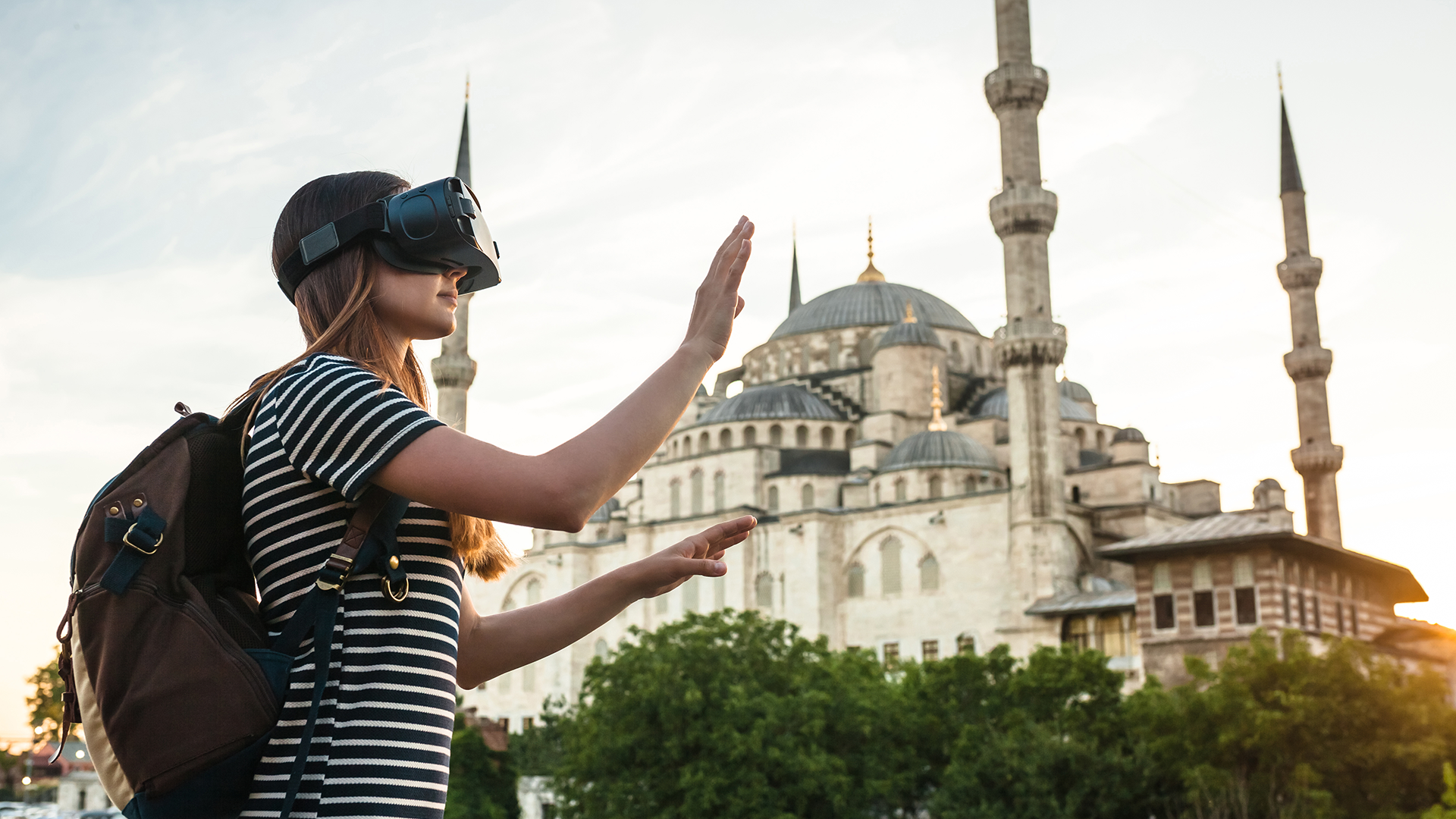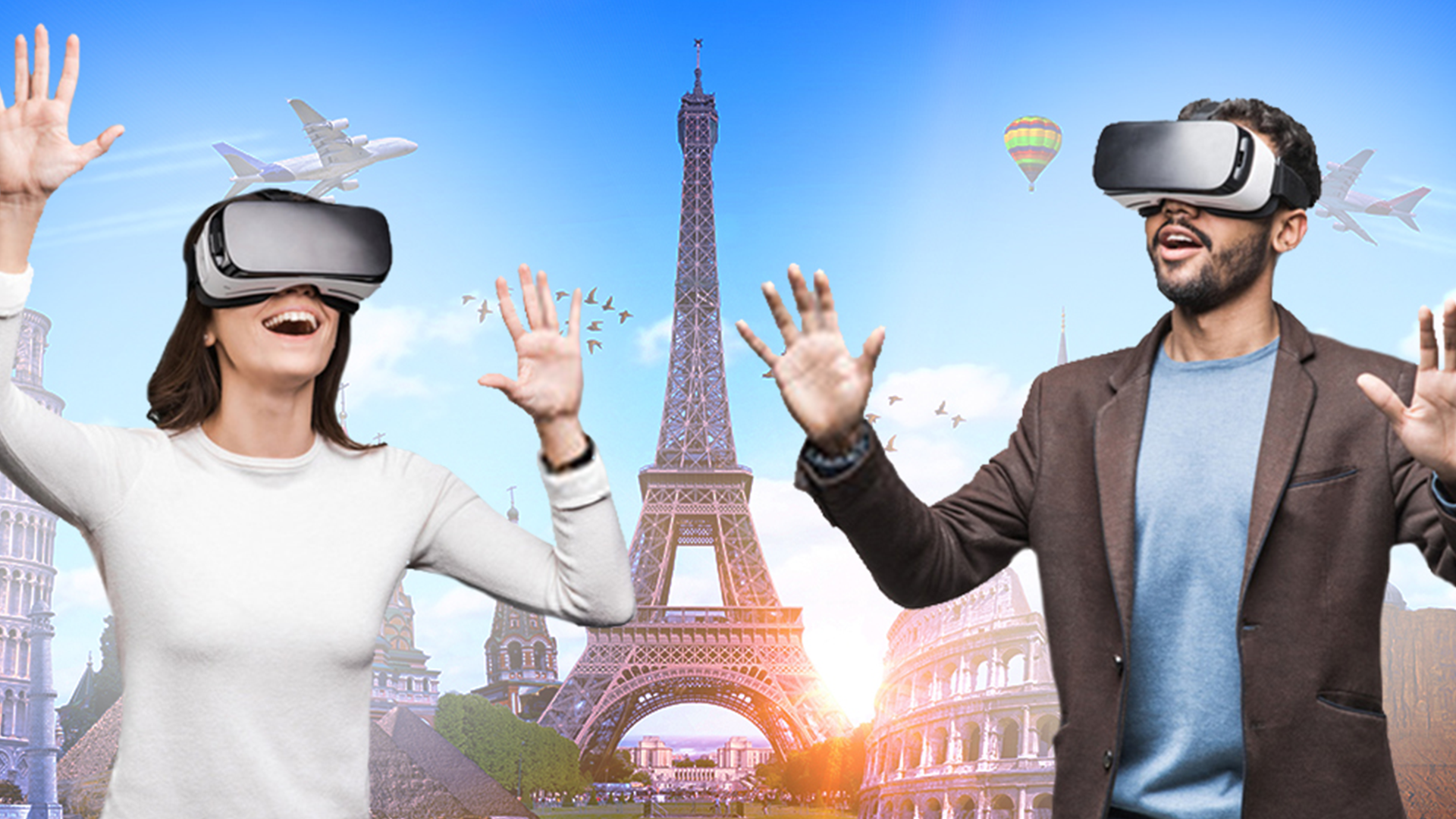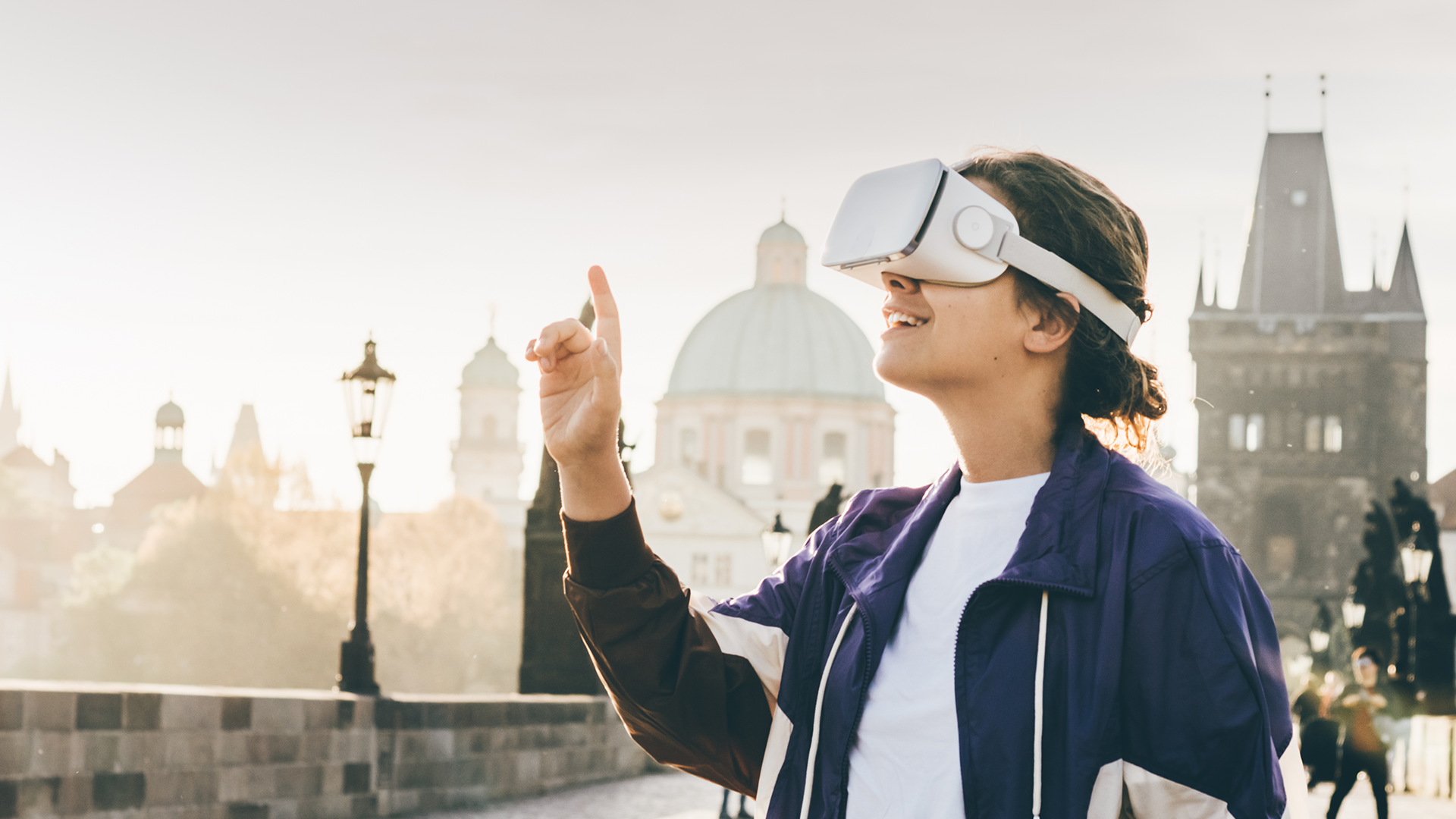Tourism is an ever-growing industry that thrives on creating exclusive and encompassing experiences for its customers. Accordingly, virtual reality is a technology that is broadening horizons for the industry and creating the desired experiences for the travelers. The immersive nature of VR enables everyone to experience a virtual version of a hotel room, attraction, coffee shop, etc.
Naturally, travelers seek to purchase experiences rather than products, and Virtual Reality offers a great way to provide an entirely new adventure that takes in all the senses.
The incredible thing about the technology is that you feel like you’re actually present in another place with other people. People who try it say it’s different from anything they’ve ever experienced in their lives.
Mark Zuckerberg
Here are some of the benefits of VR in tourism:
- To provide a kind of ‘try before you buy’ option. It gives users an experience of a destination that they wouldn’t get from looking at pictures or visiting a website.
- To offer the tourist access to destination information in a much more accurate and reliable way than when compared to the traditional promotional material, which helps travelers in planning their trip.
- To give businesses an edge over the competition by letting coordinators post 3D tours of cities so that customers are more intrigued to contact the company about travel plans.
- To help travelers locate simple things like the nearby coffee shop, restaurant, gift shop, etc.
- To help travelers better plan their trip by showing them a virtual tour of the hotel room, explore its facilities and take a walk around the resort.
The benefits of virtual reality in tourism are many; it improves tourism marketing, enhances all kinds of on-site experiences for users, and inspires travelers. With the growth of VR, we think that virtual travel experiences will become a huge part of the tourism industry in the near future.




